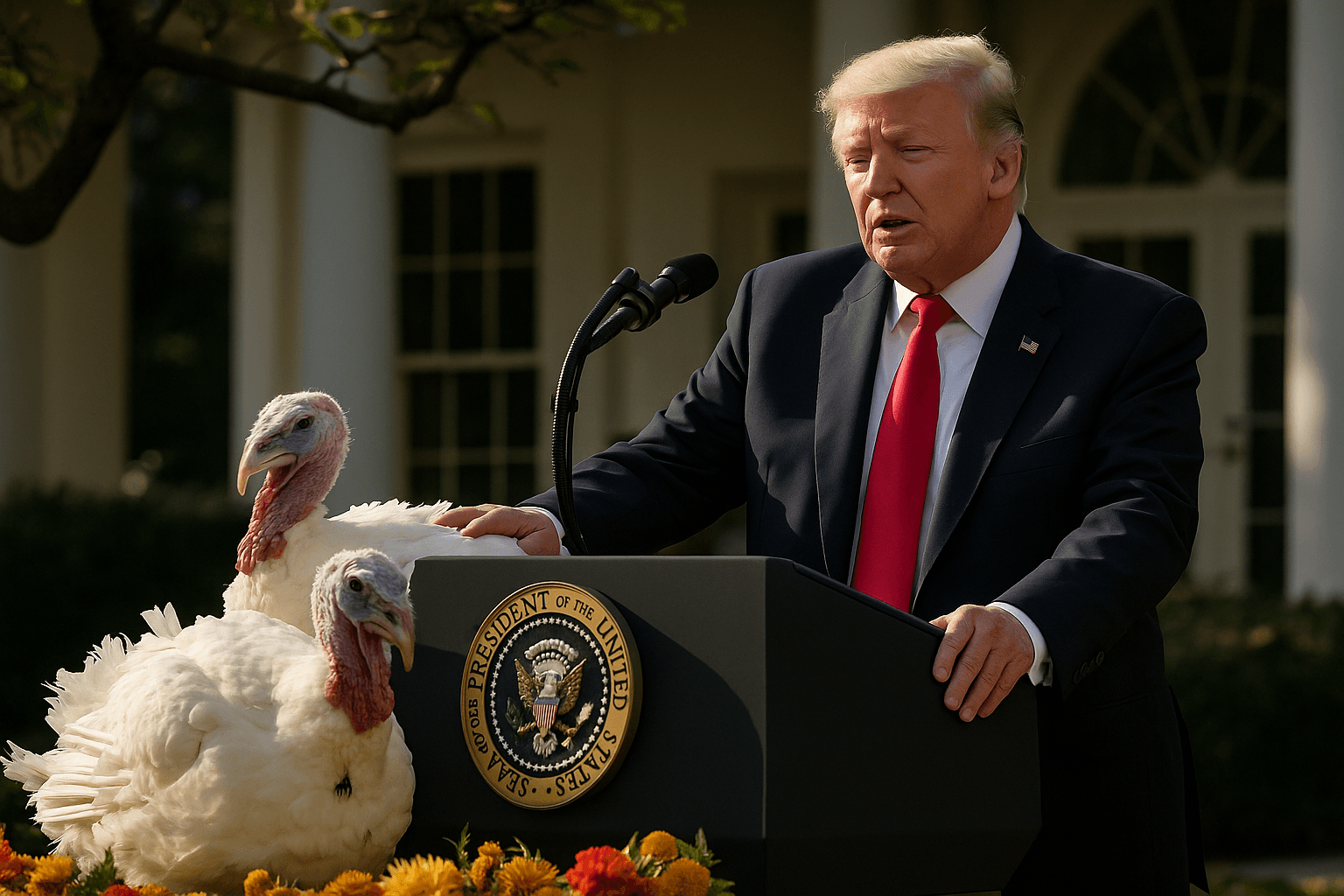President Trump Pardons Turkeys Gobble, Waddle in Rose Garden
In the White House Rose Garden on November 25, President Donald Trump ceremonially spared two turkeys named Gobble and Waddle, sending them to live at North Carolina State University’s agricultural college. The lighthearted ritual drew attention because the president mixed customary banter with partisan remarks, underscoring how ceremonial events can become platforms for broader political messages.

On November 25, President Donald Trump carried out the annual Thanksgiving tradition of sparing two turkeys, formally pardoning birds named Gobble and Waddle in a brief ceremony on the South Lawn. The president said he was re pardoning last year’s turkeys, and he threaded jocular commentary about the birds with pointed political barbs that broadened the scope of what is usually a nonpolitical holiday ritual. The turkeys were announced as bound for North Carolina State University’s agricultural college, where they will live out their lives under the care of that institution.
The ritual offered a moment of levity for a divided nation, but it also illustrated how even ceremonial events can be turned into occasions for political theater. The pardoning tradition dates back decades and is often framed as an exercise in national unity. This year the event highlighted the contrast between symbolic compassion for animals and enduring policy debates over food access, farmworker welfare, and agricultural supports that affect millions of Americans.
Public health and social equity advocates noted the broader context in which the ceremony took place. Turkey is a central part of many Thanksgiving meals, yet many households in the United States struggle with food insecurity. Federal nutrition programs, agricultural subsidies, and the structure of the poultry industry all influence who eats well and who does not. When a presidential platform emphasizes lighthearted ritual, it can obscure unresolved questions about how federal policy supports low income families, small farms, seasonal workers, and rural health systems.
Agricultural colleges such as North Carolina State play roles beyond hosting ceremonial animals. They serve as centers for animal husbandry research, veterinary training, and outreach to farming communities. For students and staff, hosting high profile animals can bring attention and modest resources, and the placement of Gobble and Waddle at a university underscores the educational link between public ceremony and campus agricultural programs. At the same time, those benefits are limited in scale relative to the structural challenges facing food production and distribution nationwide.

The president’s comments about undoing prior pardons and his partisan jabs during the event also speak to a larger trend in contemporary political communications, where even noncontroversial traditions become opportunities to reinforce allegiance and draw contrasts with opponents. Such use of ceremonial moments affects civic discourse and can influence public perceptions of government priorities, particularly in communities that rely on federal programs for health, nutrition, and economic stability.
For many Americans the pardoning ceremony will be remembered for its charm and pageantry. For policy makers and health advocates, it is a reminder that symbolism and substance often collide. As Gobble and Waddle take up residence at an agricultural college east of the capital, the underlying questions about who has reliable access to nutritious food, how farmworkers are treated, and how agricultural policy serves the public good remain central to the holiday season and to ongoing debates about national priorities.


